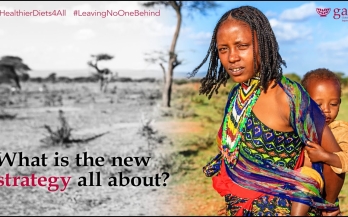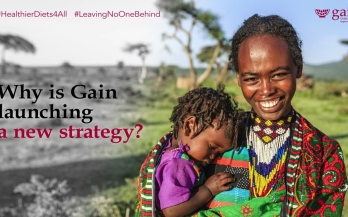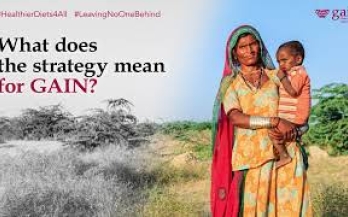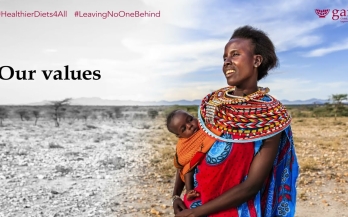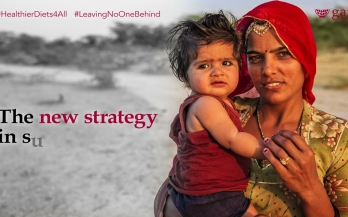Healthier Diets for All People
In December 2022, the GAIN Board adopted a new five-year strategy. Due to COVID19, conflict in Ukraine, and climate change, malnutrition and hunger have worsened significantly since 2019, reversing a decade of progress. There is growing recognition that our food systems need to change if we are to reverse these trends.
The keystone of the new GAIN Strategy is to transform food systems to make healthier diets from sustainable food systems accessible to all people and especially those whose are most vulnerable to shocks.
By 2027, we aim to improve the access of 1.5 billion people to nutritionally enhanced staple foods, improve the access of 25 million people to healthier diets, and support positive food system change in 10 countries. This is bold and complex and the only way to achieve this is to work together with partners at the country and global level. These goals and the ways of achieving them build on our twenty year legacy of transforming people’s lives with improved nutrition through concerted action and effective policy change.
GAIN’s new Strategy has five focus areas:
Doubling down on healthier diets
This means going beyond improving access to safe and nutritious foods to the bigger goal of increasing access to healthier diets for all, especially for those most vulnerable to malnutrition, which includes women and children. We will also work to limit the consumption of foods that are considered unhealthy, such as ultraprocessed foods, rich in fat, salt, and sugar, which can crowd out healthier options. We will work hard to stimulate the demand and affordable supply of fruits, vegetables, pulses, nuts, and animal sourced proteins such as fish, dairy, chicken, and eggs.
Protecting the most vulnerable
We will focus on protecting those most vulnerable to shocks: notably, we target those living on USD 3.2 or less per day, and those belonging to social categories that exacerbate vulnerability based on age, gender, or social exclusion. Food systems must become more diverse and locally sustainable to be safer and more resilient while reaching those most vulnerable to malnutrition, such as women and children.
Engaging nature
We will design and implement our work to positively link nutrition to climate a. nd the environment. We want to make GAIN the greenest nutrition organisation there is, both operationally and programmatically. This will make us a more responsible partner and help us accelerate advancements in nutrition outcomes.
Scaling up our impact
We will design and implement our work to positively link nutrition to climate a. nd the environment. We want to make GAIN the greenest nutrition organisation there is, both operationally and programmatically. This will make us a more responsible partner and help us accelerate advancements in nutrition outcomes.
Continuous institutional development
In our relentless efforts to improve our impact we have updated our values. We will continue to evolve our robust governance mechanisms based on transparency in all we do, and to build an inclusive, and diverse organisation which champions gender equality. We will continue to develop a cadre of leaders and staff who are motivated, talented, and who value GAIN as a fantastic place to work. We will continue to increase our income, financial resilience and organisational effciency.
We want healthier diets for all, especially for those most vulnerable to malnutrition. This strategy will help us realise this aspiration. We will do this through nine targeted programmes, that focus on improving the consumption of safe and nutritious foods, as well as other outcomes that are important in their own right and which are enabling for nutrition improvement, such as adapting to climate change, generating livelihoods for those on low incomes, promoting women’s empowerment, and building food system resilience. You can read more about these programmes in our fuller narrative and expanded slide deck below, and which will be delivered in many countries where we operate. We hope you will consider working with us.
Videos
